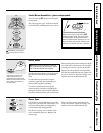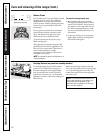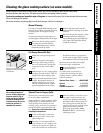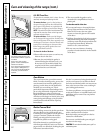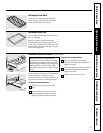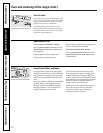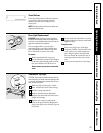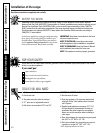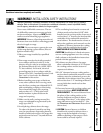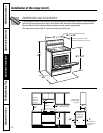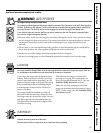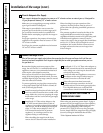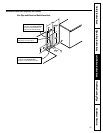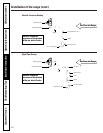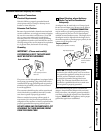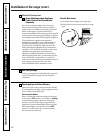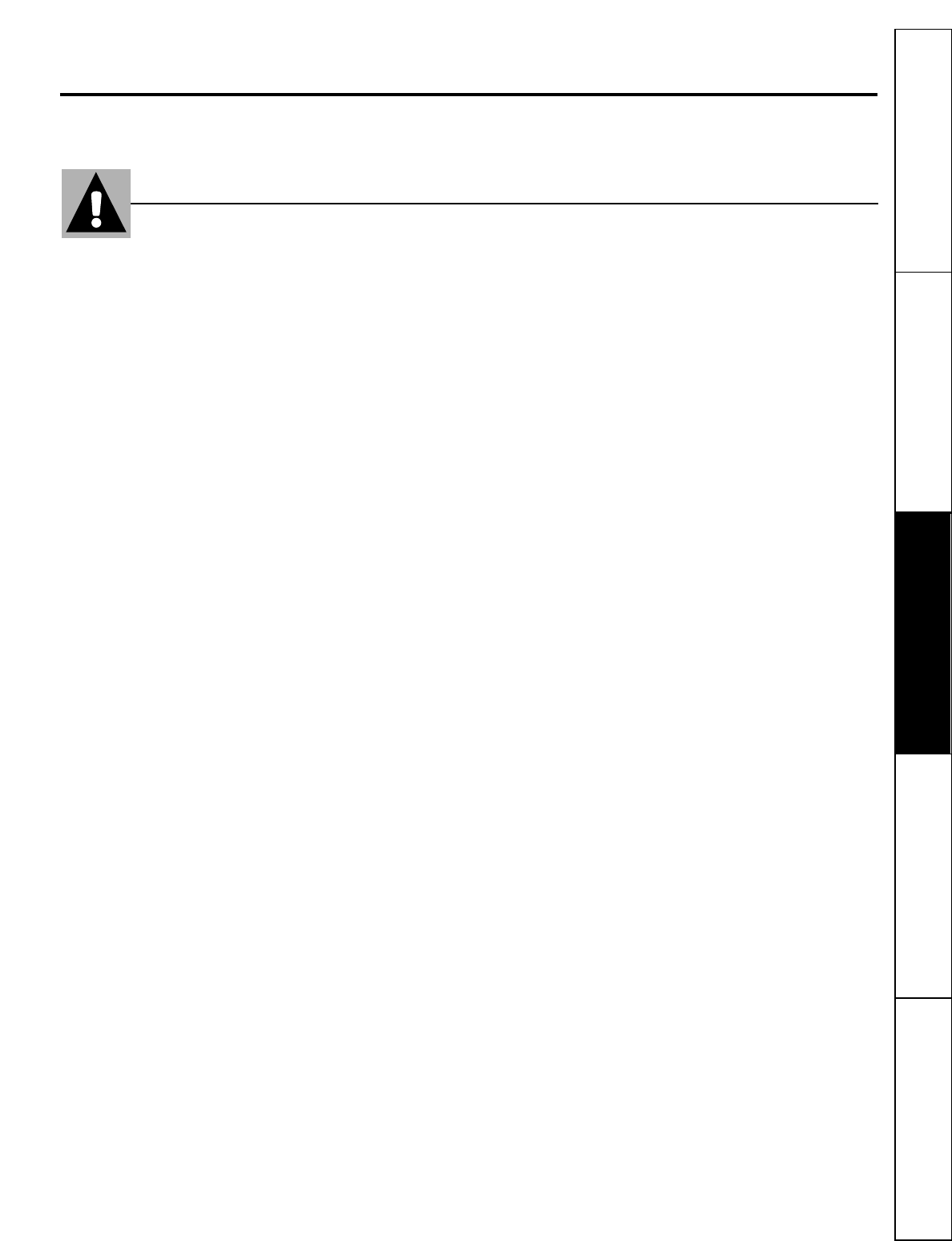
Customer Service
Operating InstructionsSafety Instructions
Installation Instructions Troubleshooting Tips
41
Read these instructions completely and carefully.
WARNING!
INSTALLATION SAFETY INSTRUCTIONS
Improper installation, adjustment, alteration, service or maintenance can cause injury or property
damage. Refer to this manual. For assistance or additional information, consult a qualified installer,
service agency, manufacturer (dealer) or the gas supplier.
Never reuse old flexible connectors. The use
of old flexible connectors can cause gas leaks
and personal injury. Always use
NEW
flexible
connectors when installing a gas appliance.
IMPORTANT:
Remove all packing material and
literature from oven before connecting gas and
electrical supply to range.
CAUTION:
Do not attempt to operate the oven
of this range during a power failure (Electric
Ignition models only).
■ Have your range installed by a qualified
installer.
■ Your range must be electrically grounded
in accordance with local codes or, in the
absence of local codes, in accordance with
the National Electrical Code (ANSI/NFPA
70, latest edition). In Canada, electrical
grounding must be in accordance with the
current CSA C22.1 Canadian Electrical Code
Part 1 and/or local codes. See
Electrical
Connections
in this section.
■ Before installing your range on linoleum
or any other synthetic floor covering, make
sure the floor covering can withstand 180°F.
without shrinking, warping or discoloring.
Do not install the range over carpeting
unless a sheet of 1/4″ thick plywood or
similar insulator is placed between the
range and carpeting.
■ Make sure the wall coverings around the
range can withstand heat generated by the
range up to 200°F.
■ Avoid placing cabinets above the range.
To reduce the hazard caused by reaching
over the open flames of operating burners,
install a ventilation hood over the range that
projects forward at least 5″ beyond the front
of the cabinets.
■ The ventilating hood must be constructed
of sheet metal not less than 0.0122″ thick.
Install above the cooktop with a clearance of
not less than 1/4″ between the hood and the
underside of the combustible material or
metal cabinet. The hood must be at least as
wide as the appliance and centered over the
appliance. Clearance between the cooking
surface and the ventilation hood surface
MUST NEVER BE LESS THAN 24 INCHES.
EXCEPTION:
Installation of a listed microwave
oven or cooking appliance over the cooktop
shall conform to the installation instructions
packed with that appliance.
■ If cabinets are placed above the range,
allow a minimum clearance of 30″ between
the cooking surface and the bottom of
unprotected cabinets.
■ If a 30″clearance between cooking surface
and overhead combustible material or metal
cabinets cannot be maintained, protect the
underside of the cabinets above the cooktop
with not less than 1/4″ insulating millboard
covered with sheet metal not less than
0.0122″ thick.
■ Clearance between the cooking surface and
protected cabinets
MUST NEVER BE LESS
THAN 24 INCHES.
The vertical distance from
the plane of the cooking surface to the
bottom of adjacent overhead cabinets
extending closer than 1″ to the plane of the
range sides must not be less than 18″. (See
the
Dimensions and Clearances
illustration in
this section.)
■
CAUTION:
Items of interest to children
should not be stored in cabinets above a
range or on the backsplash of a range—
children climbing on the range to reach
items could be seriously injured.



